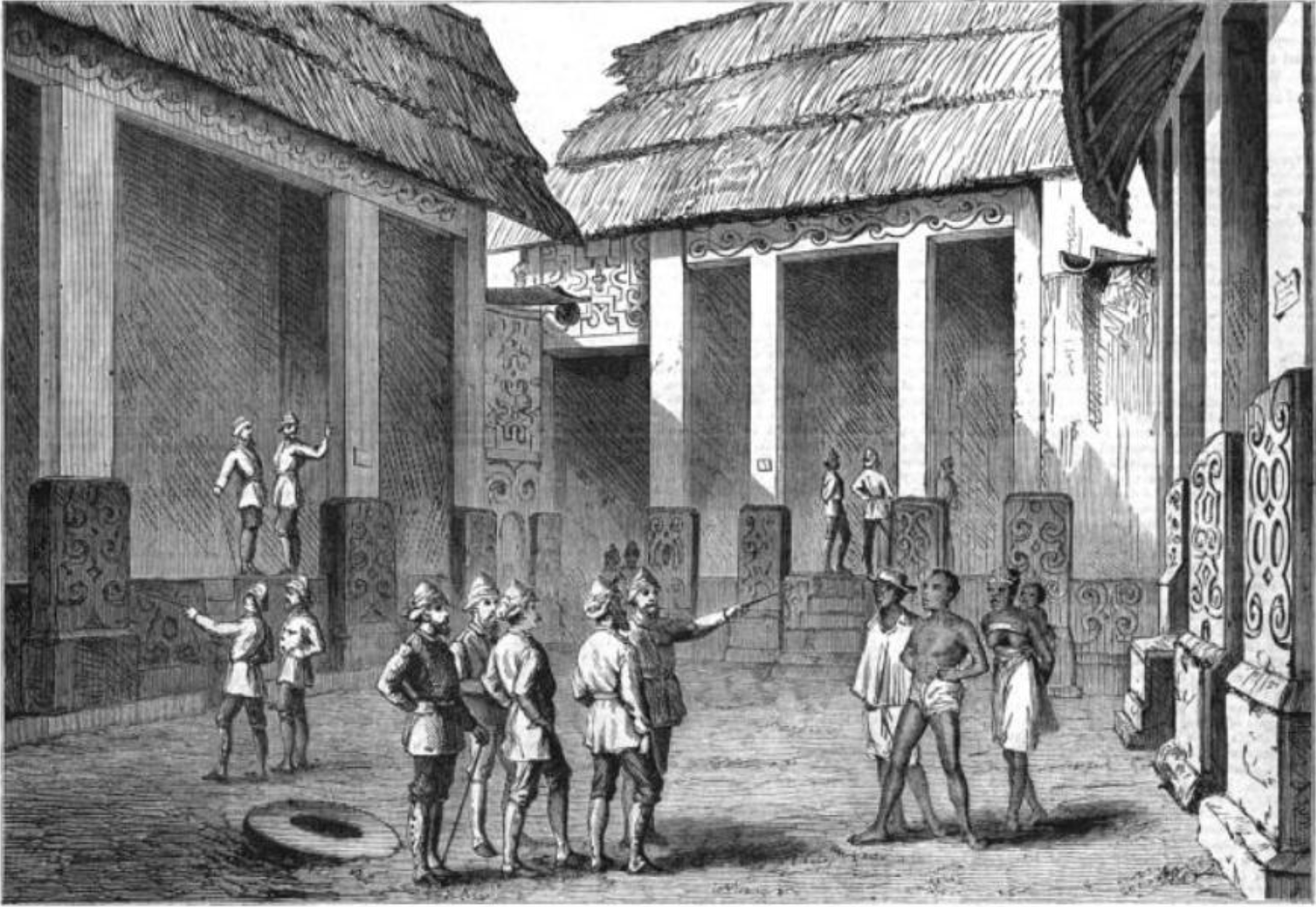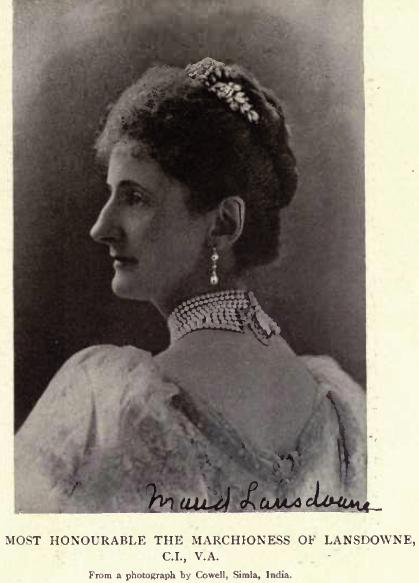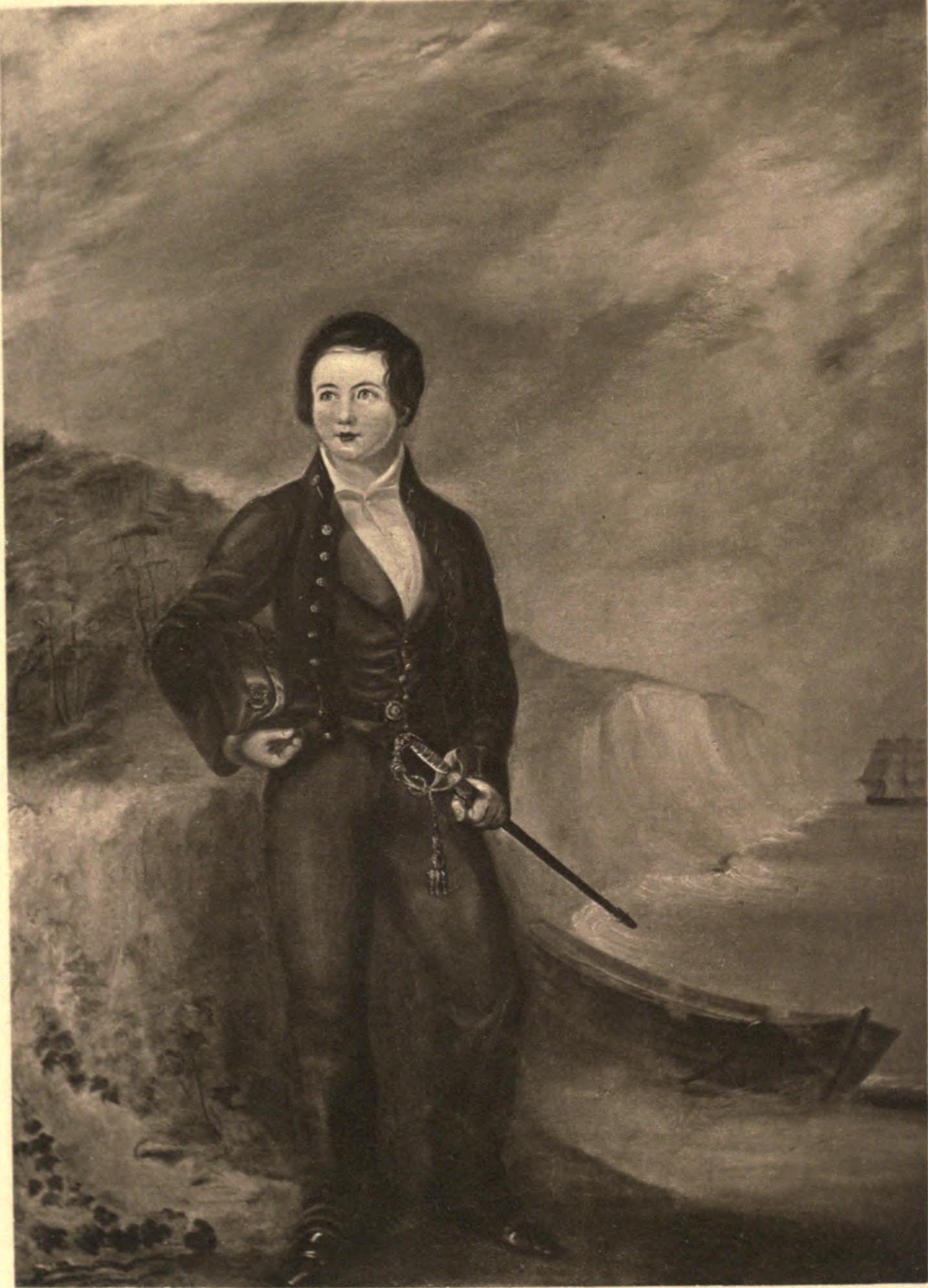|
Wolseley Ring
The Wolseley ring was a group of 19th century British army officers loyal to Garnet Wolseley and considered by him to be clever, brave, experienced and hard-working. After the Crimean War Wolseley started to keep a note of the best officers he met, and began gathering a network of able military men loyal to him. There were other circles around other military leaders; later these would dwindle as more formal selection and promotion procedures became established. The 'ring' itself was rooted in Wolseley's appointments for the Ashanti Campaign of 1873-4, in which Wolseley led British troops to take control of the Gold Coast. He chose officers he had got to know during his Red River Campaign in Canada in 1870: *John Carstairs McNeill * William Francis Butler *Redvers Henry Buller *Hugh McCalmont as well as other key figures: *Henry Brackenbury *John Frederick Maurice *George Pomeroy Colley *Baker Creed Russell *Henry Evelyn Wood *John Plumptre Carr Glyn Men from this group accompanie ... [...More Info...] [...Related Items...] OR: [Wikipedia] [Google] [Baidu] |
British Army
The British Army is the principal land warfare force of the United Kingdom, a part of the British Armed Forces along with the Royal Navy and the Royal Air Force. , the British Army comprises 79,380 regular full-time personnel, 4,090 Gurkhas, and 28,330 volunteer reserve personnel. The modern British Army traces back to 1707, with antecedents in the English Army and Scots Army that were created during the Restoration in 1660. The term ''British Army'' was adopted in 1707 after the Acts of Union between England and Scotland. Members of the British Army swear allegiance to the monarch as their commander-in-chief, but the Bill of Rights of 1689 and Claim of Right Act 1689 require parliamentary consent for the Crown to maintain a peacetime standing army. Therefore, Parliament approves the army by passing an Armed Forces Act at least once every five years. The army is administered by the Ministry of Defence and commanded by the Chief of the General Staff. The British ... [...More Info...] [...Related Items...] OR: [Wikipedia] [Google] [Baidu] |
George Pomeroy Colley
Major General Sir George Pomeroy Colley, (1 November 1835 – 27 February 1881) was a British Army officer who became Governor and Commander-in-Chief of Natal and High Commissioner for South Eastern Africa. Colley was killed in action, at the Battle of Majuba Hill. Early years He was the third and youngest son of the Hon. George Francis Pomeroy (George Francis Colley from 1830) of Ferney, co. Dublin, by his wife, Frances, third daughter of Thomas Trench, dean of Kildare, and was a grandson of John Pomeroy, 4th Viscount Harberton. Raised in Rathangan, County Kildare, he was educated at Cheam, Surrey, where his headmaster, Dr Mayo, described him as ‘swift to take offence, prompt and vigorous in resenting it’.Sir William Francis Butler, ‘The life of Sir George Pomeroy-Colley, K. C. S. I., C. B.,C. M. G., 1835-1881; including services in Kaffraria--in China--in Ashanti--in India and in Natal’ (1889). He was educated at the Royal Military College, Sandhurst, where he was f ... [...More Info...] [...Related Items...] OR: [Wikipedia] [Google] [Baidu] |
Ashanti Kingdom
The Asante Empire ( Asante Twi: ), today commonly called the Ashanti Empire, was an Akan state that lasted between 1701 to 1901, in what is now modern-day Ghana. It expanded from the Ashanti Region to include most of Ghana as well as parts of Ivory Coast and Togo. Due to the empire's military prowess, wealth, architecture, sophisticated hierarchy and culture, the Ashanti Empire has been extensively studied and has more historic records written by European, primarily British authors than any other indigenous culture of Sub-Saharan Africa.Collins and Burns (2007), p. 140. Starting in the late 17th century, the Ashanti king Osei Tutu ( – 1717) and his adviser Okomfo Anokye established the Ashanti Kingdom, with the Golden Stool of Asante as a sole unifying symbol. Osei Tutu oversaw a massive Ashanti territorial expansion, building up the army by introducing new organisation and turning a disciplined royal and paramilitary army into an effective fighting machine. In 1701, ... [...More Info...] [...Related Items...] OR: [Wikipedia] [Google] [Baidu] |
Anglo-Asante Wars
The Anglo-Ashanti wars were a series of five conflicts that took place between 1824 and 1900 between the Ashanti Empire—in the Akan interior of the Gold Coast—and the British Empire and its African allies. Though the Ashanti emerged victorious in some of these conflicts, the British ultimately prevailed in the fourth and fifth conflicts, resulting in the complete annexation of the Ashanti Empire by 1900. The wars were mainly due to Ashanti attempts to establish a stronghold over the coastal areas of present-day Ghana. Coastal peoples such as the Fante and the Ga came to rely on British protection against Ashanti incursions. Earlier wars The British fought three earlier wars in the Gold Coast: In the Ashanti-Fante War of 1806–07, the British refused to hand over two rebels pursued by the Ashanti, but eventually handed one over (the other escaped). In the Ga-Fante War of 1811, the Ashanti sought to aid their Ga allies in a war against the Fante and their British alli ... [...More Info...] [...Related Items...] OR: [Wikipedia] [Google] [Baidu] |
Henry Petty-FitzMaurice, 5th Marquess Of Lansdowne
Henry Charles Keith Petty-Fitzmaurice, 5th Marquess of Lansdowne, (14 January 18453 June 1927), was a British statesman who served successively as Governor General of Canada, Viceroy of India, Secretary of State for War and Secretary of State for Foreign Affairs. In 1917, during the First World War, he wrote the " Lansdowne Letter", advocating in vain a compromise peace. A millionaire, he had the distinction of having held senior positions in Liberal and Conservative Party governments. Early years, 1845–1882 A great-grandson of British Prime Minister Lord Shelburne (later 1st Marquess of Lansdowne) and the eldest son of Henry Petty-Fitzmaurice, 4th Marquess of Lansdowne, and his wife, Emily, 8th Lady Nairne (''née'' de Flahaut), Henry Charles Keith Petty-Fitzmaurice was born in London in 1845. He held the courtesy title ''Viscount Clanmaurice'' from birth to 1863 and then the courtesy title ''Earl of Kerry'' until he succeeded to the marquessate in 1866. Upon his mo ... [...More Info...] [...Related Items...] OR: [Wikipedia] [Google] [Baidu] |
Second Boer War
The Second Boer War ( af, Tweede Vryheidsoorlog, , 11 October 189931 May 1902), also known as the Boer War, the Anglo–Boer War, or the South African War, was a conflict fought between the British Empire and the two Boer Republics (the South African Republic and the Orange Free State) over the Empire's influence in Southern Africa from 1899 to 1902. Following the discovery of gold deposits in the Boer republics, there was a large influx of "foreigners", mostly British from the Cape Colony. They were not permitted to have a vote, and were regarded as "unwelcome visitors", invaders, and they protested to the British authorities in the Cape. Negotiations failed and, in the opening stages of the war, the Boers launched successful attacks against British outposts before being pushed back by imperial reinforcements. Though the British swiftly occupied the Boer republics, numerous Boers refused to accept defeat and engaged in guerrilla warfare. Eventually, British scorched earth po ... [...More Info...] [...Related Items...] OR: [Wikipedia] [Google] [Baidu] |
Herbert Kitchener
Horatio Herbert Kitchener, 1st Earl Kitchener, (; 24 June 1850 – 5 June 1916) was a senior British Army officer and colonial administrator. Kitchener came to prominence for his imperial campaigns, his scorched earth policy against the Boers, his expansion of Lord Roberts' concentration camps during the Second Boer War and his central role in the early part of the First World War. Kitchener was credited in 1898 for having won the Battle of Omdurman and securing control of the Sudan for which he was made Baron Kitchener of Khartoum. As Chief of Staff (1900–1902) in the Second Boer War he played a key role in Roberts' conquest of the Boer Republics, then succeeded Roberts as commander-in-chief – by which time Boer forces had taken to guerrilla fighting and British forces imprisoned Boer civilians in concentration camps. His term as Commander-in-Chief (1902–1909) of the Army in India saw him quarrel with another eminent proconsul, the Viceroy Lord Curzon, who even ... [...More Info...] [...Related Items...] OR: [Wikipedia] [Google] [Baidu] |
Frederick Roberts, 1st Earl Roberts
Field Marshal Frederick Sleigh Roberts, 1st Earl Roberts, (30 September 1832 – 14 November 1914) was a British Victorian era general who became one of the most successful British military commanders of his time. Born in India to an Anglo-Irish family, Roberts joined the East India Company Army and served as a young officer in the Indian Rebellion during which he was awarded the Victoria Cross for gallantry. He was then transferred to the British Army and fought in the Expedition to Abyssinia and the Second Anglo-Afghan War, in which his exploits earned him widespread fame. Roberts would go on to serve as the Commander-in-Chief, India before leading British Forces for a year during the Second Boer War. He also became the last Commander-in-Chief of the Forces before the post was abolished in 1904. A man of small stature, Roberts was affectionately known to his troops and the wider British public as "Bobs" and revered as one of Britain's leading military figures at a time w ... [...More Info...] [...Related Items...] OR: [Wikipedia] [Google] [Baidu] |
Garnet
Garnets () are a group of silicate minerals that have been used since the Bronze Age as gemstones and abrasives. All species of garnets possess similar physical properties and crystal forms, but differ in chemical composition. The different species are pyrope, almandine, spessartine, grossular (varieties of which are hessonite or cinnamon-stone and tsavorite), uvarovite and andradite. The garnets make up two solid solution series: pyrope-almandine-spessartine (pyralspite), with the composition range ; and uvarovite-grossular-andradite (ugrandite), with the composition range . Etymology The word ''garnet'' comes from the 14th-century Middle English word ''gernet'', meaning 'dark red'. It is borrowed from Old French ''grenate'' from Latin ''granatus,'' from ''granum'' ('grain, seed'). This is possibly a reference to ''mela granatum'' or even ''pomum granatum'' (' pomegranate', ''Punica granatum''), a plant whose fruits contain abundant and vivid red seed covers ( arils), ... [...More Info...] [...Related Items...] OR: [Wikipedia] [Google] [Baidu] |
John Plumptre Carr Glyn
Lieutenant-General Sir John Plumptre Carr Glyn (11 January 1837 – 28 March 1912) was a British general who saw active service in the Crimean War and the Anglo-Ashanti War. Early life John Plumptre Carr Glyn was born Witchampton, east Dorset. Military career He joined the Rifle Brigade in August 1854 just before the opening of hostilities in the Crimea. He saw active service during the second year of the campaign and was present at Sebastopol from 17 June until the fall of the fortress on 11 September 1855. He was promoted from ensign to lieutenant without purchase on 29 December 1854. He next saw active service, in 1874, as a major in the 2nd Battalion of the Rifle Brigade, under Colonel Sir Garnet Wolseley during the Third Anglo-Ashanti War. He was personally involved in the Battle of Amoaful on 31 January 1874 and five days later when the fighting ended with the Battle of Ordashu. He was also present at the capture of the capital, Kumasi, which had been abandoned b ... [...More Info...] [...Related Items...] OR: [Wikipedia] [Google] [Baidu] |
Evelyn Wood (British Army Officer)
Field Marshal Sir Henry Evelyn Wood, (9 February 1838 – 2 December 1919) was a British Army officer. After an early career in the Royal Navy, Wood joined the British Army in 1855. He served in several major conflicts including the Indian Mutiny where, as a lieutenant, he was awarded the Victoria Cross, the highest award for valour in the face of the enemy that is awarded to British and Imperial forces, for rescuing a local merchant from a band of robbers who had taken their captive into the jungle, where they intended to hang him. Wood further served as a commander in several other conflicts, notably the Third Anglo-Ashanti War, the Anglo-Zulu War, the First Boer War and the Mahdist War. His service in Egypt led to his appointment as Sirdar where he reorganised the Egyptian Army. He returned to Britain to serve as General Officer Commanding-in-Chief Aldershot Command from 1889, as Quartermaster-General to the Forces from 1893 and as Adjutant General from 1897. Hi ... [...More Info...] [...Related Items...] OR: [Wikipedia] [Google] [Baidu] |
Baker Russell
General Sir Baker Creed Russell (11 January 1837 – 25 November 1911) was an Australian-born British Army officer who served with distinction in the Indian Mutiny, Anglo-Ashanti War, Anglo-Zulu War, Sekhukhune Wars, and Egyptian War Early life Baker Creed Russell was born in 1837 at Ravensworth, Maitland, New South Wales, Australia, the son of The Honourable#Australia, the Hon. William Russell (New South Wales politician), William Russell, of the New South Wales Legislative Council, formerly a captain in the 73rd (Perthshire) Regiment of Foot, 73rd Regiment. Military career Russell entered the British Army in 1855 as a Cornet (military rank), cornet of Carabiniers (6th Dragoon Guards), the Carabiniers. Promoted to lieutenant on 1 August 1856, he was present at Meerut during the Indian Mutiny The Indian Rebellion of 1857 was a major uprising in India in 1857–58 against the rule of the British East India Company, which functioned as a sovereign power on behalf ... [...More Info...] [...Related Items...] OR: [Wikipedia] [Google] [Baidu] |







